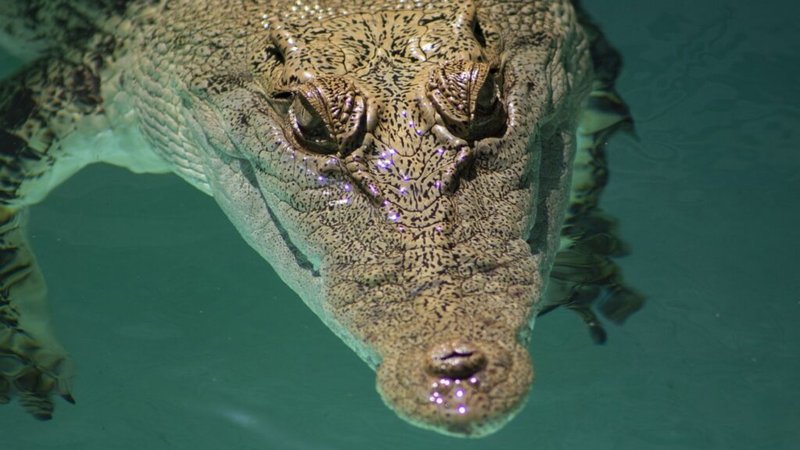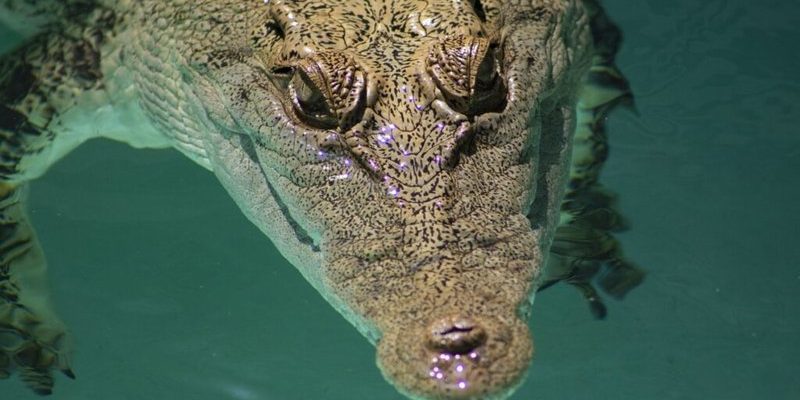
Current Status of Saltwater Crocodiles
Saltwater crocodiles are not currently listed as endangered by the International Union for Conservation of Nature (IUCN); instead, they are classified as “Least Concern.” This means they aren’t facing imminent extinction. However, it’s essential to appreciate that this status might not reflect the local populations’ health everywhere. For instance, in some regions, these reptiles are more threatened due to habitat destruction and other environmental pressures.
In countries like Australia, saltwater crocodile populations are doing relatively well, thanks to effective management strategies and conservation programs. These animals have made a remarkable comeback after being hunted nearly to extinction in the 20th century. On the flip side, some areas still experience significant challenges. In Southeast Asia, for example, expanding human settlements and agriculture increasingly encroach on their natural habitats, disrupting their lives and breeding grounds.
Threats to Saltwater Crocodiles
You might think that being a giant predator would keep saltwater crocodiles safe. Sadly, that’s not the case. They face several threats that impact their populations:
- Habitat Loss: As coastal areas are developed for agriculture or human settlements, crocodiles lose vital nesting and feeding grounds. Wetlands, mangroves, and river ecosystems all suffer from this destruction.
- Illegal Hunting: Despite protections in many countries, illegal hunting still poses a threat. Crocodiles are hunted for their skins, used in fashion and accessories.
- Climate Change: Rising sea levels and changing temperatures impact nesting sites and food availability. Saltwater crocodiles are sensitive to environmental changes, and those shifts could disrupt their natural behaviors.
- Human Conflict: Crocodiles often venture into human-populated areas in search of food, leading to conflicts. When a croc attacks livestock or a person, the response is usually to eliminate the threat, often resulting in culling.
Understanding these challenges gives us insight into why conservation actions are essential for these apex predators’ survival.
Conservation Efforts for Saltwater Crocodiles
Conservation organizations and governments have stepped up to protect saltwater crocodiles. You might be surprised by how many initiatives there are. Here’s a breakdown of some key efforts taking place:
- Protected Areas: Many regions have established national parks and reserves where saltwater crocodiles can thrive without human interference. This not only safeguards the crocodiles but also preserves the larger ecosystem.
- Legal Protections: Hunting and trade of saltwater crocodiles are regulated under national and international laws. This helps ensure that populations remain at healthy levels.
- Community Involvement: Local communities often play a crucial role in conservation. By educating residents about the importance of crocodiles in the ecosystem and promoting eco-tourism, people can see the benefits of protecting these reptiles instead of viewing them solely as threats.
- Research and Monitoring: Scientists continuously study saltwater crocodiles to monitor their populations and health. This information can guide current policies and management strategies.
It’s easy to feel overwhelmed by the challenges facing saltwater crocodiles. However, these conservation efforts show that positive change is possible.
The Role of Education and Awareness
Education plays a vital role in crocodile conservation. A well-informed public is crucial for the success of these initiatives. Here’s how education helps the cause:
Promoting understanding about saltwater crocodiles makes people appreciate them more. For instance, knowing that these creatures help keep ecosystems healthy by regulating prey populations can change how people view them. Instead of seeing crocodiles as just dangerous animals, we can recognize their ecological importance.
Schools and communities can organize workshops, conservation camps, and even citizen-science projects. Initiatives like these empower everyday people to get involved. When communities understand their local environment and its inhabitants, they are more likely to take steps to protect them.
What You Can Do to Help
Feeling inspired to pitch in? You don’t need to be a scientist to make a difference. Here are some simple ways you can help protect saltwater crocodiles:
- Support Local Conservation Efforts: Look for organizations working to protect wildlife in your area. Volunteering your time or donating funds can have a significant impact.
- Educate Others: Share what you’ve learned about saltwater crocodiles with friends and family. Raising awareness is crucial for conservation.
- Be Responsible Outdoors: If you’re near a crocodile habitat, follow guidelines and respect their space. Leaving no trace while hiking or boating helps protect their homes.
- Advocate for Change: Contact your local representatives and voice your support for policies promoting wildlife conservation. Your voice matters!
Every small action counts when it comes to conservation.
Saltwater crocodiles may not be endangered, but their survival still hangs in the balance due to various threats. Understanding these challenges and the ongoing conservation efforts gives us hope for the future of this magnificent species. Remember, every one of us has a role to play in protecting these apex predators and their habitats. By staying informed, supporting local conservation initiatives, and leading by example, we can contribute to a healthier ecosystem and ensure that future generations get to marvel at the incredible saltwater crocodile. Let’s work together to keep these giants thriving for years to come!

